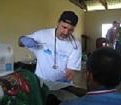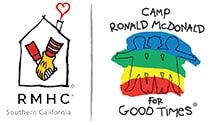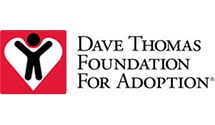Glenn Buck
“All it takes is one patient, one family member, or a fellow staff member to make us smile and remember why we do this rewarding job.”
Glenn Buck, RN, is currently an ER travel nurse working in Seattle at Swedish Cherry Hill. The biggest challenge I see in the nursing profession is probably the shortage which affects not only the nursing staff, but also the operating ability of the facilities, the ability of the physician’s to give complete care to the patients and of course the care given to the patient’s themselves. When units are working short staffed, the care given to each individual patient is diminished and not due to the dedication or skills of the nurse, but just because of the sheer number of patient’s that they are required to take care of. It is also more difficult as the Baby Boomer generation continues to age and health problems become more complex requiring higher levels of care. The longer nurses work short staffed and are working harder, the shorter amount of time nurses will spend in high stress areas of nursing, therefore leaving less experienced nurses to take care of the sickest most complex patients. This will eventually deplete the amount of nurses overall as many more will leave the profession earlier than they had originally planned.
It’s also possible that facilities could be sued more as our society is becoming more and more adept and willing to take anyone or any business to litigation if they feel they’ve been wronged. As nurses work short staffed, even the most skilled and experienced nurses are more prone to make mistakes. This opens the nurse, the physician and the facility up for litigation. Facilities need to treat nurses better, pay us better and staff the units more safely, and if this is the culture that is fostered, I foresee more people entering the nursing profession.
Another thing that I think hinders the ability of nurses to take care of their patients is the idea that we are more customer service driven with surveys and handling tasks that are more concerned with patient satisfaction. Many times, it is impossible to make patients and their families happy with their care even though the care has been up to the standard of care. This goes along with the shortage of nurses within the profession. As far as things that nurses and others can do to elevate the perception of professionalism of nurse’s would be to teach physicians that we are invaluable in the care of the patient’s that physicians are also taking care of. So many nurses feel slighted, unappreciated, disrespected by physicians that treat them like less than a person and often times in front of a patient. This defeats the culture of professionalism both of the nurse and actually the physician and makes the patient feel that the care they are receiving is substandard. Most of the time, physicians are just ordering tests to investigate and then diagnose. Nurses are the professionals that carry out and monitor those interventions and then sometimes suggest a different course of action that may be more beneficial to the patient. Good physicians will take this under advisement, maybe change the direction they are taking towards caring for the patient, or educate the nurse in a professional manner why the original path was taken.
Another way maybe that I think is doing a disservice to nurses’ professionalism in the eyes of the public is this idea that a Bachelor RN is a better nurse or better prepared than either an Associate degree nurse or an LPN. I am probably going to upset a lot of nurses, but I disagree with this opinion. In most programs there really isn’t any more intensive clinical instruction for bachelor-prepared nurses. Ethics and leadership are the main focus. In my humble opinion, neither leadership nor ethics can be taught. Requiring nurses to have a BSN and using marketing to the public that touts that all of their nurses are bachelor-prepared nurses gives the public the false perception that any nurse that has less education are somehow less qualified to take care of them. As far as I am concerned, as we continue to work on the job and learn from fellow colleagues, physicians and continuing education is far more valuable than any learning from textbooks.
This is by no means a comprehensive list of things that could be done. I really don’t see myself as a mentor to other nurses. I do, however, aim to help other nurses as much as possible, as well as learn from other nurses every day while taking care of patients. I am always striving to learn more to be able to better take care of my patients. I think that giving back to our local community and to the world at large is the best way to help other’s having a better quality of life through more healthy living. Telling my story about volunteering to other nurses can get them excited about doing something that may have more meaning in their lives. This allows an increased number of people without the ability to have access to good healthcare, to at least be seen by a healthcare professional, get education and hopefully live a healthier life. I have used my skills in a volunteering capacity. I have been on two volunteer medical missions. I went with an organization called One Nurse At A Time to Belize for a short five day mission taking care of members of three different villages.
I performed triage on many patients with many different complaints. I was able to make judgments based on my clinical assessment whether or not patients needed to be seen by a physician or if they could be sent to the pharmacy and get over the counter medication that we brought that was donated by the members of the mission and by other organizations. I was able to, with direction of a physician, suture a 15 year old boy who came in with a machete injury to his hand for harvesting bananas. I recently returned from a two week mission in Guatemala with my 17 year old son, Nicholas with a Seattle based organization called Guatemala Village Health. This organization was started by two physicians in 2007 and they have been taking volunteers, nurses, physicians, physician assistants, dental hygienists and dental assistants at least twice a year since then. They have Guatemalan nationals running programs when they are not there. They have started educational programs in fluoride, composting toilets, planting gardens and healthy eating as well as maternal and baby health. It was very rewarding to see the progress they have achieved, as well as humbling to see how much is still left to be done.
The conditions are never good, but it is humbling and rewarding to give of your clinical and compassionate skills to those that do appreciate everything that you do for them.
The other overseas work I have done was work for Partners In Health as an Ebola Clinician in Port Loko, Sierra Leone for a month. Traveling overseas and seeing the conditions that people live in every day definitely opens up your eyes to the world around you. I find that returning home from a mission is almost harder than going on the mission. Unless others have gone to similar places and done similar things it’s difficult for friends and family to really understand what you have encountered and the impact that volunteering has on one’s psyche. It recharges you, it changes you and when you return, it’s not long before you are thinking about when and where you can go on your next mission. I recommend that every nurse go on at least one mission. There are many, many opportunities and organizations that travel to many different locations. One Nurse At A Time has a database of organizations, locations, amount of time and cost of missions.
A reason that nurses may hesitate to go on a mission is that the cost can be somewhat prohibitive at times. There are many ways that money can be raised to pay for a mission. Many organizations have scholarships available and they just need to be applied for. I have heard of nurses doing a letter writing campaign or talking to local physicians and/or businesses to sponsor them. I did a GoFund me campaign that funded part of my trip. Please don’t let the cost of a trip deter you from going. There are many ways to make it happen.
Going along with the mantra of nursing healing the bodies, hearts and minds of those we take care of and their families, it can definitely be seen in all areas of nursing and particularly in volunteering. When you give of yourself outside of your normal FTE, those lives that you touch and those people that you hold their hand or give them a hug and a smile are so very grateful that you have taken the time out of your own life to help them live a healthier life. I believe that despite the long hours, the missed bathroom breaks, the missed food, the missed time with our family, nurses enter this profession to give of themselves and help to make other’s lives healthier, happier and more fulfilling.
All it takes is one patient, one family member, a fellow staff member to make us smile and remember why we do this rewarding job.
Volunteering takes this to a whole new level. I challenge nurses who are feeling burnt out, unappreciated and ready to leave the profession or even switch their focus, to go on a mission. They will come back renewed and with a vigor that they can transfer to their patient’s, the families and their fellow staff. To further expand on the above mantra, I feel that as nurses we are the ones who see people at their worst. We are charged with fostering trust in such a short amount of time and in such an intimate way that we must take care of the heart and minds of everyone we come into contact with. I feel that you can heal the body, but unless you touch their heart and mind, they are not whole. Education of patients and their loved ones is a huge part of our everyday life as nurses. It is important that we leave a patient in a better state, physically, mentally and emotionally than they arrived.




